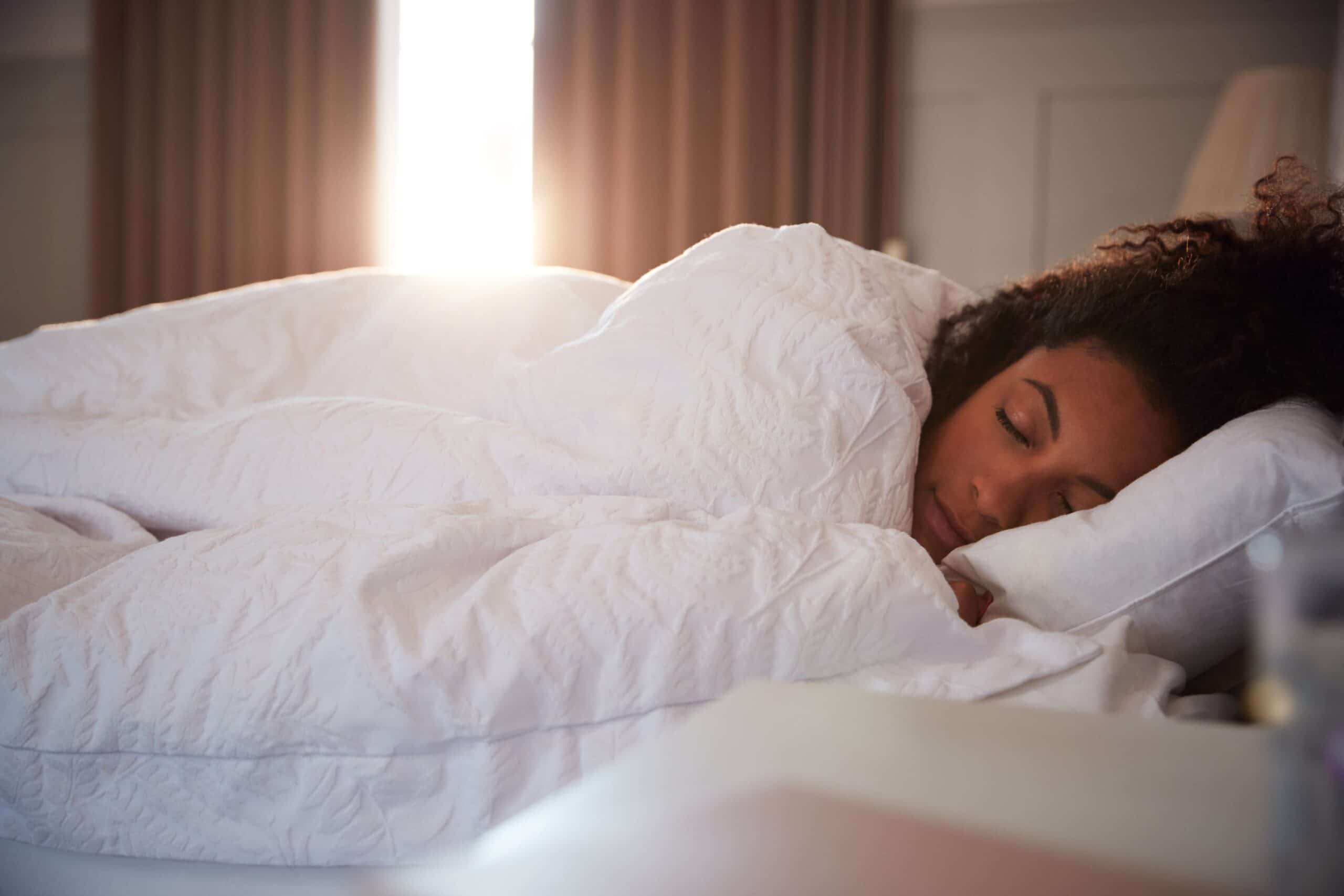When struggling to get to sleep, it can sometimes feel as though nothing could possibly help. However, there’s a growing trend for weighted blankets – and a new study suggests they could be just the ticket for helping ease insomnia.
Researchers from the Karolinska Institutet in Stockholm, Sweden, found insomnia patients with psychiatric disorders had their insomnia severity reduced when using a weighted blanket at night. It also improved their sleep and they experienced less daytime sleepiness, anxiety and depression.
Weighted chain blankets are heavy coverings with channels sewn up and down to help distribute the weight evenly across the body. Unlike a normal duvet, they’re weighed down usually with plastic or glass beads, so you feel cocooned beneath. Many people who use a weighted blanket say it can be a strange feeling at first, but one you quickly get used to.
The Swedish study tested participants using a weighted blanket of either six or eight kilograms for four weeks, compared to a control group. It found those in the former group were almost 26 times more likely to experience a 50% or more decrease in their insomnia severity. The study was followed up 12 months later, and the benefits were still being felt.
So how does it work? Consultant psychiatrist at the Karolinska Institutet Dr Mats Alder said: “A suggested explanation for the calming and sleep-promoting effect is the pressure that the chain blanket applies on different points on the body, stimulating the sensation of touch and the sense of muscles and joints, similar to acupressure and massage. There is evidence suggesting that deep pressure stimulation increases parasympathetic arousal of the autonomic nervous system and at the same time reduces sympathetic arousal, which is considered to be the cause of the calming effect.”
Ultimately, Alder said: “I was surprised by the large effect size on insomnia by the weighted blanket and pleased by the reduction of levels of both anxiety and depression.”
The participants of the study all had clinical insomnia and a psychiatric disorder such as depression or anxiety, so more research will be required to see if the weighted blanket can help those who struggle with sleep and anxiety on a milder scale.
Weighted blankets are seemingly growing in popularity judging by their celebrity fans. Jennifer Lawrence put one on her Amazon wedding registry, and Kourtney Kardashian spoke about them on Instagram.
The new findings link to another study published in the Journal of Clinical Sleep Medicine by William V McCall. His paper suggests the success of weighted blankets is down to the ‘holding environment’ theory, describing how “touch, especially human touch, is a basic need, symbolically represented in the psychotherapeutic relationship, and provides calming and comfort”.
As the weather starts to get cooler and you need something to really snuggle up under at night, a weighted blanket could be the way to go – and it might just help with your sleep.





